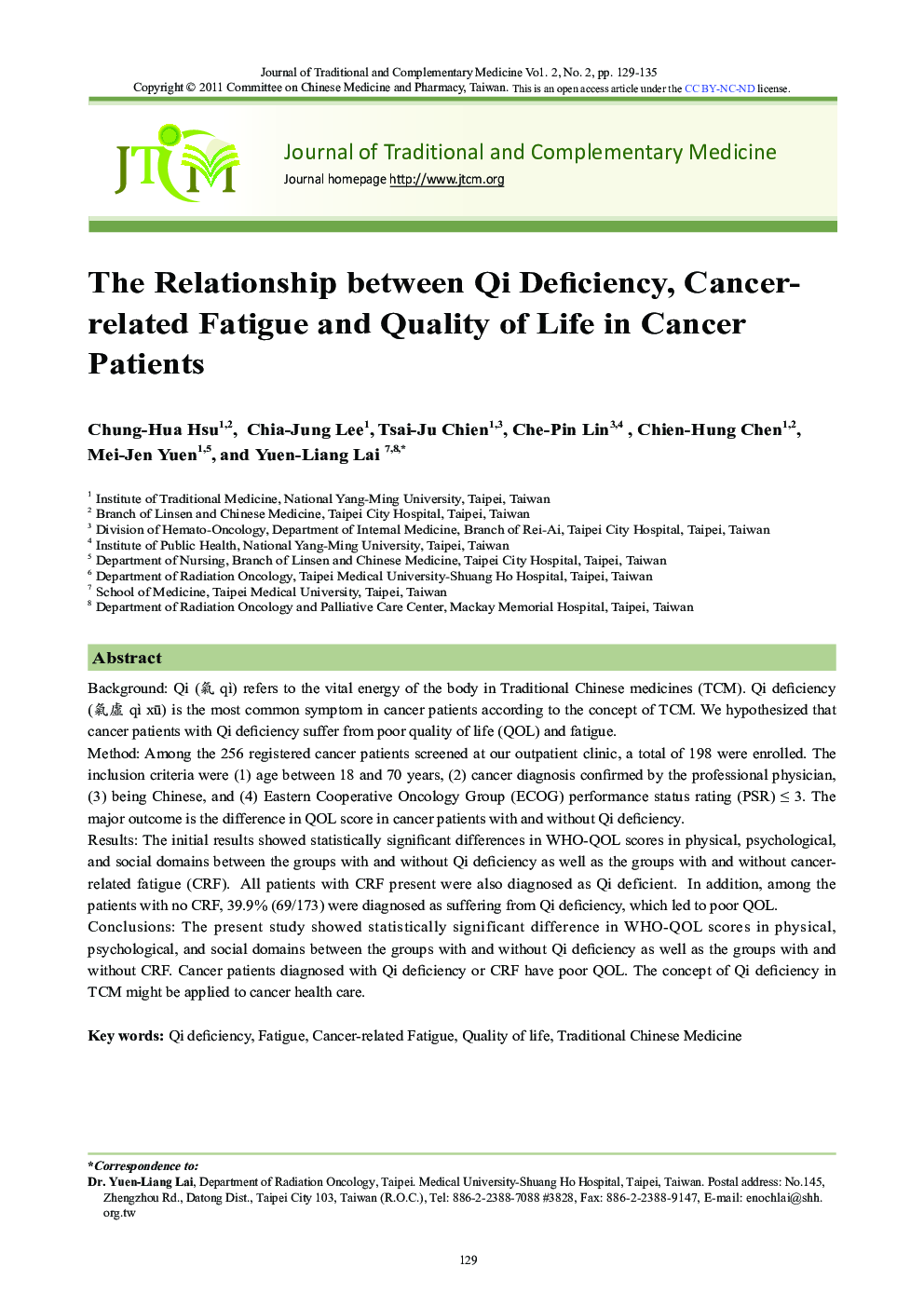| Article ID | Journal | Published Year | Pages | File Type |
|---|---|---|---|---|
| 3099904 | Journal of Traditional and Complementary Medicine | 2012 | 7 Pages |
BackgroundQi (氣 qì) refers to the vital energy of the body in Traditional Chinese medicines (TCM). Qi deficiency (氣虛 qì xū) is the most common symptom in cancer patients according to the concept of TCM. We hypothesized that cancer patients with Qi deficiency suffer from poor quality of life (QOL) and fatigue.MethodAmong the 256 registered cancer patients screened at our outpatient clinic, a total of 198 were enrolled. The inclusion criteria were (1) age between 18 and 70 years, (2) cancer diagnosis confirmed by the professional physician, (3) being Chinese, and (4) Eastern Cooperative Oncology Group (ECOG) performance status rating (PSR) ≤ 3. The major outcome is the difference in QOL score in cancer patients with and without Qi deficiency.ResultsThe initial results showed statistically significant differences in WHO-QOL scores in physical, psychological, and social domains between the groups with and without Qi deficiency as well as the groups with and without cancerrelated fatigue (CRF). All patients with CRF present were also diagnosed as Qi deficient. In addition, among the patients with no CRF, 39.9% (69/173) were diagnosed as suffering from Qi deficiency, which led to poor QOL.ConclusionsThe present study showed statistically significant difference in WHO-QOL scores in physical, psychological, and social domains between the groups with and without Qi deficiency as well as the groups with and without CRF. Cancer patients diagnosed with Qi deficiency or CRF have poor QOL. The concept of Qi deficiency in TCM might be applied to cancer health care.
